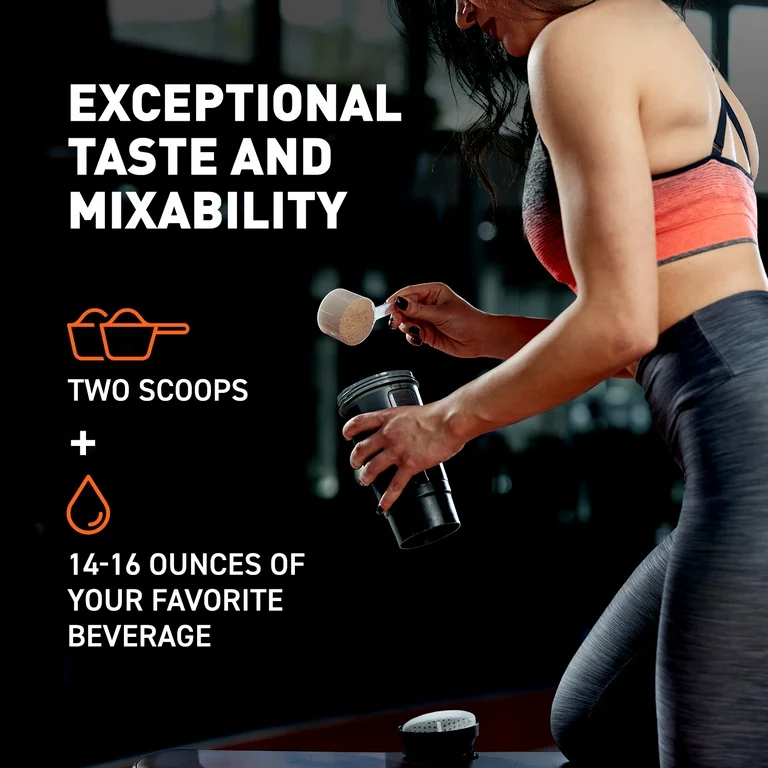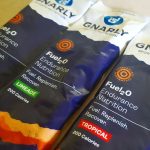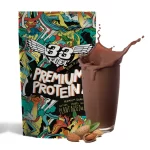Introduction to Sports Nutrition
The journey to mastering sports nutrition is unique and rigorous. Engaging in a masters in sports nutrition embodies a commitment to understanding how dietary choices can enhance athletic performance, prevent injuries, and promote overall well-being.
The Importance of Nutrition in Athletic Performance
Nutrition is one of the most critical factors for achieving peak athletic performance. A well-devised nutrition plan can make the difference between winning and losing. It fuels the body to train harder, recover faster, and perform better. Athletes who prioritize their nutritional intake see significant improvements in speed, strength, and stamina.
Masters in sports nutrition programs delve into the science that links nutrition with physical performance. They offer insights into the way nutrients affect muscle development and the body’s recuperation processes. Understanding these principles is crucial for anyone who plans to guide athletes towards reaching their maximum potential.
Essential Nutrients for Athletes
A balanced diet is essential for peak performance, yet athletes have specific nutritional needs. Carbohydrates, proteins, and fats are the macronutrients that provide the energy necessary to sustain long periods of physical activity. Micronutrients, such as vitamins and minerals, support muscle contraction, blood production, bone health, and immunity.
Masters in sports nutrition courses cover the importance of each nutrient category and how they can be optimized for athletes’ diets. They address the timing of nutrient intake and the role supplements might play. These programs equip future sports nutritionists with the knowledge to tailor dietary strategies that align with the goals and demands of various sports and individual athletes.

Choosing the Right Program
Choosing the right masters in sports nutrition program is critical. This decision will significantly influence your career path and expertise in sports nutrition. It’s important to methodically evaluate each program’s offerings to find the best fit for your educational and professional goals.
Evaluating Curriculum and Faculty Expertise
When evaluating programs, pay close attention to the curriculum. Ensure it covers a wide range of topics relevant to sports nutrition, including advanced human nutrition, dietary supplements, and sports medicine. The faculty’s expertise is equally important. Look for programs where instructors are experienced professionals in sports nutrition. They should have a strong record of research and practical experience in the field. Faculty who are actively involved in sports nutrition can provide valuable insights and real-world perspectives.
Considering Online vs On-Campus Options
Deciding between an online and an on-campus masters in sports nutrition program involves considering your lifestyle and learning preferences. Online programs offer flexibility, allowing you to balance studies with personal commitments. They are ideal for those who need to manage their time more efficiently or are working while studying. On the other hand, on-campus programs provide direct interaction with faculty and peers. This can enhance learning through hands-on experiences and collaborative projects. Consider how each option aligns with your learning style and professional needs before making a decision.
Core Courses and Topics
Metabolism and Exercise
Masters in sports nutrition programs highlight courses focusing on metabolism and its impact on exercise. These courses explore how the body converts food into energy during physical activity. Students learn about different metabolic pathways and their roles in energy production. Insights into anaerobic and aerobic processes equip students with the knowledge to optimize athletic performance. Understanding these metabolic functions is critical for designing effective training regimes.
Nutritional Planning and Diets for Athletes
This part of the program teaches students how to develop nutritional plans tailored for athletes. It covers the strategic timing of nutrient intake and the selection of appropriate foods. Students learn to balance macronutrients and micronutrients to enhance performance and recovery. Courses also consider dietary preferences and restrictions, ensuring plans are inclusive and effective. This training helps future sports nutritionists to create diets that align with specific sporting goals and athlete needs.

Career Opportunities Post Graduation
Graduating with a masters in sports nutrition opens numerous career doors. Given the industry’s growth, professionals can expect diverse roles suited to their expertise and passion.
Roles in Sports Teams and Fitness Clubs
Masters in sports nutrition graduates are in high demand in sports teams and fitness clubs. They work closely with athletes to ensure optimal nutrition for peak performance. Roles might include head of nutrition, team dietitian, or nutritional consultant.
Jobs in fitness clubs often involve creating diet plans and nutrition education for members. The goal is to improve their overall health and fitness levels. These positions are crucial in advising on dietary habits and supplement use.
Opportunities in Research and Education
Beyond direct practice, a masters in sports nutrition equips you for positions in research and academia. Researchers focus on discovering new insights into sports nutrition. They might work in lab settings or conduct field research to test hypotheses about diet and athletic performance.
In academia, graduates can teach at universities and colleges. They share knowledge on sports nutrition, inspire students, and guide future professionals. There are also opportunities to contribute to sports nutrition literature or speak at industry conferences.

Practical Experience and Internships
Practical experience is a cornerstone of a masters in sports nutrition. Internships and fieldwork bridge academic learning with real-world application. These opportunities enable students to apply theoretical knowledge in practical settings. They handle real-life scenarios, improving their skills and preparing for future challenges.
Gaining Real-World Experience Through Fieldwork
Fieldwork is vital in a masters in sports nutrition program. Students engage directly with athletes and sports teams, applying their knowledge of dietetics. They assess nutritional needs and manage dietary plans to enhance performance. Fieldwork provides a platform to observe and understand the dynamic needs of athletes. It helps students gain confidence and competence in their field.
Networking and Professional Development
Networking is key to advancing in sports nutrition. Internships and other practical experiences offer chances to connect with professionals. Students meet mentors, colleagues, and industry leaders who provide insights and opportunities. They learn about emerging trends and job openings. Professional development workshops and seminars are often part of these experiences. They sharpen skills and prepare students for successful careers.
Challenges and Considerations
Embarking on a masters in sports nutrition presents a set of challenges and considerations that students must navigate.
Balancing Dietetics and Sports Science
Masters in sports nutrition students often face the challenge of balancing the principles of dietetics with sports science. Dietetics focuses on the nutritional aspects and health, while sports science is more concerned with physical activity and sports performance.
- Interdisciplinary understanding: Students must develop an understanding that intertwines both fields.
- Practical application: It is essential to apply dietary knowledge within the context of sports science to ensure athletes’ needs are met.
- Coursework complexity: The curriculum may become complex as it combines extensive nutritional biochemistry with exercise physiology.
By integrating these two disciplines, students can formulate dietary strategies that both support general health and maximize athletic performance.
Staying Updated with Current Research
The field of sports nutrition is constantly evolving with new research emerging regularly. Staying abreast of current research is crucial for students and future professionals.
- Continual learning: Students must commit to lifelong learning to keep up with the latest findings.
- Professional journals: Regularly reading professional journals and attending seminars is vital.
- Networking: Engaging with experts and peers can provide insights into research trends and innovations.
Masters in sports nutrition programs often include training in research methods to help students develop skills to discern and contribute to evolving knowledge in the field.

Student Resources and Support
Embarking on a masters in sports nutrition is a demanding journey. It requires robust support systems to navigate the academic and professional landscapes successfully. Universities and colleges that offer masters in sports nutrition programs understand this need and provide a range of resources and support services to help students thrive.
Accessing Academic and Career Counseling
Academic and career counseling services play a pivotal role in student success. Such services guide students through course selections and academic challenges. They also offer career advice, helping students to identify their strengths and map out potential career paths.
- Personalized Guidance: Students receive one-on-one counseling to tailor their academic journey.
- Career Pathways: Advisors help explore different roles in the sports nutrition field.
- Skill Development: Counseling sessions often include skill assessments and enhancement strategies.
Support from knowledgeable counselors allows students to make informed choices and overcome obstacles they may face during their studies.
Leveraging Libraries and Online Resources
Accessible resources are essential for rigorous academic study. Masters in sports nutrition programs provide extensive library services and online databases that give students the materials they need to succeed.
- Research Materials: Libraries are stocked with books, journals, and papers on sports nutrition.
- Online Databases: Students can access the latest research and case studies remotely.
- Technology Aids: Many institutions offer software and tools specifically for nutrition research.
Taking advantage of these resources is crucial for staying up-to-date with current information and developing a deeper understanding of the field. With the right support, students in a masters in sports nutrition program can focus on gaining the expertise needed to excel in their future careers.


